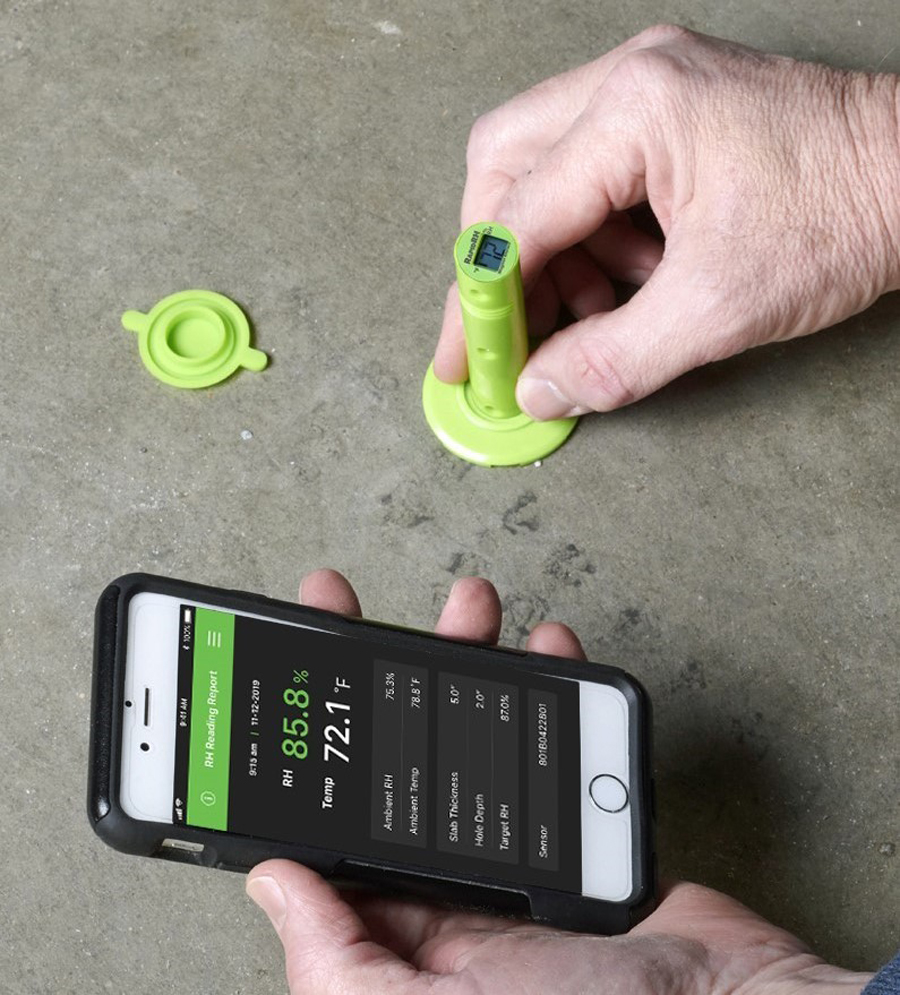Concrete Moisture Testing Tools Save Time and Money
With today’s technology, moisture testing isn’t backbreaking work anymore. And yet some professionals still overwork themselves trying to get accurate moisture readings through unreliable or time-consuming methods.
Sure, not all standards should change. But as the industry becomes more innovative, some standards need to be broken to create new ones.
A good example of that is the calcium chloride (CaCl) test for concrete moisture measurement. This test has been used in the industry since the 1940s, but it’s time for a change.
Relative humidity (RH) testing has been steadily gaining popularity because it addresses things the calcium chloride test just isn’t qualified to test.
We’ll explain.
Issues with calcium chloride testing
To start, the CaCl test takes 72 hours—48 hours longer than the RH test!
It can also be difficult to set up. The concrete slab has to be prepped before each test, and the actual application requires you to bend over or kneel on the ground. It’s a very labor-intensive process.
And according to Howard Kanare, the biggest problem is this:
“There’s no scientific documentation of why the original test conditions were established. There are no reasons or published data for the dimension of the dish and dome, the amount of CaCl used, or even why CaCl was used in the first place.”
Surely there’s an easier way!
Why relative humidity (RH) testing is the way to go
First and foremost, RH testing is backed by solid evidence. It was specifically designed and tested by researchers at Lund University in Sweden. Much of their research is what the ASTM F2170 standard outlines: The RH test provides a quantitative measurement of the moisture conditions within a concrete slab.
That valuable, internal data is something a CaCl test can’t provide since it only measures the surface conditions of the slab.
With the RH testing method, you also get valid results in 24 hours. No more waiting for 72 hours.
And since there are only so many hours in a day, imagine what it would be like to regain time for your building project!
What’s the best concrete moisture test?

Relative humidity moisture test
Plain and simple, the relative humidity test using in situ probes is your best bet. The ease of use and accuracy from these types of tests will save you time and money.
RH testing with in situ probes involves placing the probes at specific depths in the slab, per ASTM F2170 standards. After the RH probes equilibrate, you can take measurements to assess the overall moisture condition of the slab.
And there are even additional tools and technology you can pair with in situ probes to help you gather the data.
Some companies, like Wagner Meters, offer an app you can download on your smartphone that will gather and store your readings. Having a central digital storage location for your readings means your hard work is protected, should there be any damage in the future.
All you need to do is drill the hole, put the sensor in, and gather your readings. Simple, easy, and fast!
So if you’re looking for the best test on the market, go with the RH testing method
Don’t gamble away your hard work with an unscientific test.
RH testing is the best, most reliable method because it reveals the true moisture condition within concrete slabs—something the CaCl test can’t do.
And if you want to take every step to avoid flooring disasters in your future, then the Rapid RH test system is for you. Its unique, award-winning design and technologies provide the information professionals need every step of the way, from the drying slab to the finished floor.
Previously published in Floor Covering News magazine.